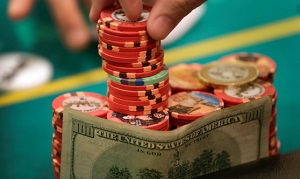Irrefutable Proof: Why is Poker a Casino Game Based on Skill and Luck?
Any player worthy of a pair of twos will explain to you that a skill-driven casino game is poker gambling.

Online poker rooms, which recently brought in roughly 2.8 billion gross bonuses worldwide in 2013, are attracting countless newcomers whose own tests of their abilities have little to do with reality.
Naturally, there was no doubt that luck played an important role. The aforementioned newbies wouldn’t have lasted long if this hadn’t happened. Likewise, it would be strange to deny the need to include some degree of skill – otherwise, why would some competitions acquire more skill than theirs?
Chance versus ability
However, the vital question is whether one element is predominant over the other. The rationale is simple enough: if luck prevails over skill, poker is just casino gambling, and of course, when skill develops into chance, poker is a game of skill in a casino.
How stable the player’s functionality is
Based on 456 million observations of players’ hands in online flash games over a calendar year, we investigated how stable the player’s functionality is. This proved conclusively that skills are involved in the game.
For example:
- players who finished in the top 10% in the first six weeks of this season were twice as likely as others to do the same in the next six weeks;
- players who finished with a 1% best in the first half of this season are 12 times more likely to repeat their achievement in the next half.
- players who whined badly against the start continued to get rid of tall actors and almost never bumped into them.
There is a poker gambling goal for the operation to be predictable. In a game of luck, the winnings of the players in successive intervals are irrelevant, whereas in a match of skills. We all know without a doubt that poker cannot be considered a game of pure luck.
Decisive moment

But the important question remains: does art prevail over chance? To verify this, we ran simulations comparing the actions of unskilled and experienced players. We found this to be a tipping point: Experienced players can play much better than their relatively inexperienced opponents for three or more quarters of their full time after 1,471 hands have been played.
In comparison, many internet players are likely to play 1,500 hands between 9 and 25 hours and will never play multiple tables at the same time.
Obviously, loyal players anywhere may be more inclined to see this revelation. They can take pride in the knowledge that the match they love is rewarding and requires genuine skill, and in the end, gift and deception can defeat blind luck.
Legal implications
However, it’s not just about identification and bragging. You might be wondering why researchers are wasting their time coming up with equations unrelated to the myriad complexities of Texas Hold’em. Why is poker gambling looks like this exactly?

Doubts surrounding the claim that poker is a game casinobonustips.com/reviews/casiplay of art have shaped legislation for centuries. UK gamblers no longer pay taxes on their winnings, which will be very good news for everyone from the very young Internet newbie to the famous writer and TV host Victoria Coren Mitchell, whose online career exceeds 1.5 million.
In some states, what is poker gambling considered to be has come under much stricter powers: for example, many states in the United States have effectively banned internet poker due to the repeal of the Illegal Internet Gambling Act 2006.
For the most part, this can change if policymakers simply take good care of the outcomes that reveal an alternative. Despite them, the judicial system has repeatedly upheld the case, along with court decisions, retained, canceled, and upheld again. It may be appropriate that a huge amount of money is at stake, and we could continue this argument even if new evidence emerges.